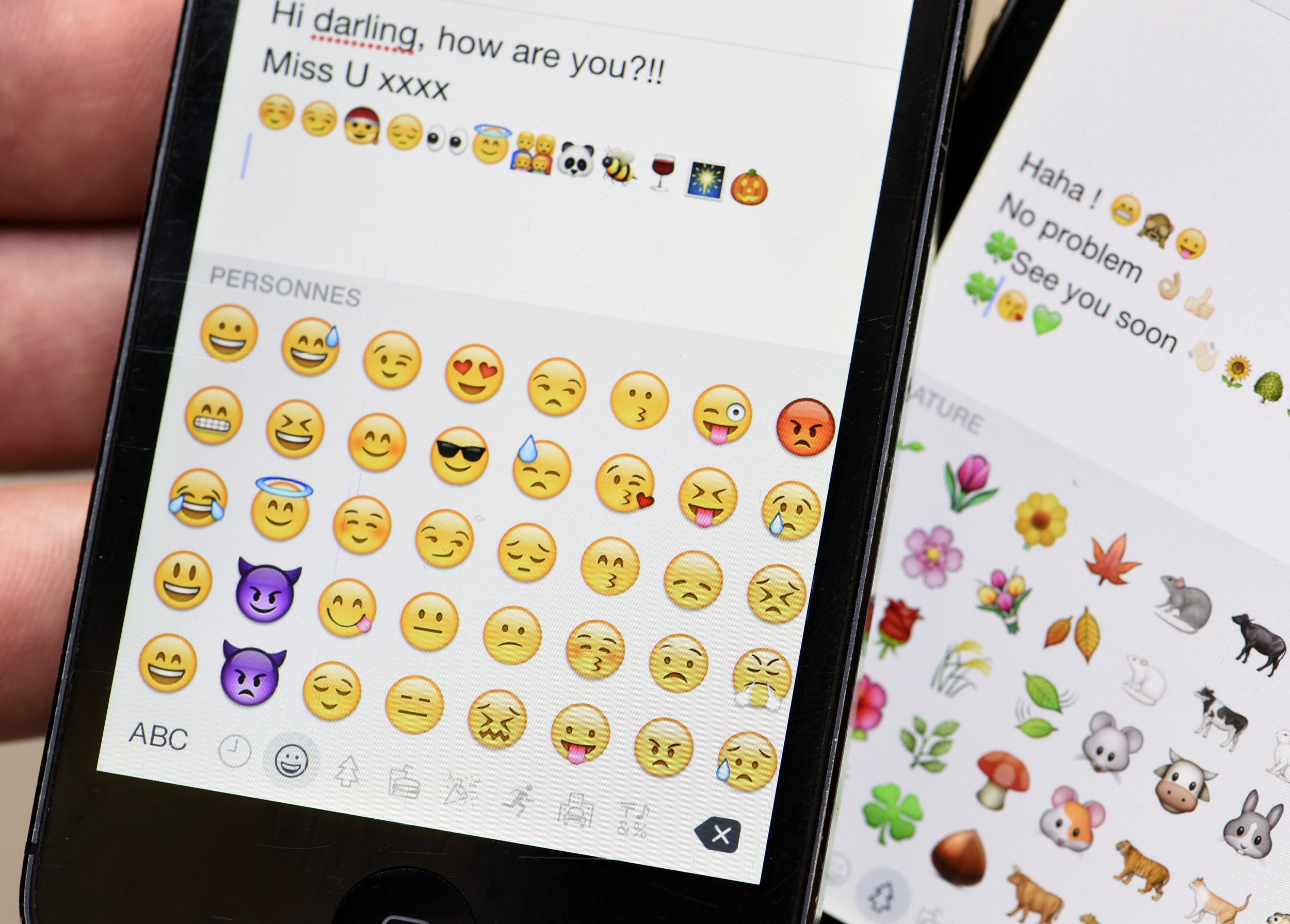
Two big things have been happening on the internet, in relation to orthography. New styles have proliferated; and old punctuation marks have begun to develop new meanings.
Regular emailers will have encountered the new styles, and may use all of them. The omission of punctuation marks, avoidance of capitalization, and the use of nonstandard spelling is commonplace—I call it "orthographic minimalism." For instance, the other day I got this message from a colleague:
dave sorry but i wont be able to get to the meetintg after all
I don't react by sending a return message:
Mike, it's about time you learned to spell. There is only one 't' in meeting.
I recognize a busy person who wants to send a message off as quickly as possible without bothering to correct it. There is no problem of intelligibility. He has got his message across. And he is not alone. There are millions more like him sending messages like this every day. It is a new style that some may not like, most tolerate and many welcome.
Some commentators have concluded from this that punctuation is on the way out. But actually, minimalism makes up only a tiny percentage of the written language that is out there. And it has to be weighed against the opposite style: orthographic maximalism. Here's another message I received, after telling someone about a successful enterprise:
That's fantastic!!!!!!!!!!!!
There were only a dozen exclamation marks. I've had messages with 20 or more. I've also seen multiple question marks, and all kinds of odd mixtures, such as ??!???!! This is novel. I know no precedent in the history of English for this sort of thing.
These styles are characteristic of informal e-communication. The more formal the interaction, the less they are likely to occur, and the more they will be construed as inappropriate. So it's important for youngsters experimenting with internet styles to realize that breaking the conventions of the standard language is dangerous in certain settings. An employer is not likely to appreciate an e-application reading:
I hope you think i;m the right person for this job :)))
We need to be able to style-switch. My apologetic colleague later that day sent me a summary of a paper in perfect standard English, with every orthographic convention respected. That is the norm. Competent users of English have different orthographic styles at their disposal just as they have different tones of voice.
The longer the message, as in blogging and most webpages, the less likely we are to encounter nonstandard orthography. We're now noticing minimalism because it is characteristic of short-messaging services. After all, if we have only 160 or 140 characters to play with, we are likely to make economies in the area where intelligibility is least threatened, such as punctuation and capitalization. We need to recall that punctuation arrived relatively late in the history of English. The earliest Anglo-Saxon texts have no punctuation—sometimes not even spaces between words.
A consequence of minimalism is the rise in new uses of old marks, and here the period takes center stage. In instant messaging and a great deal of social forum chat, we see the punctuation-less style as a norm. The screen boundaries suffice to mark sentence-ending. Users sense this, so that even those who would routinely use a period in other writing find themselves dropping it when engaged in a written exchange where there are pressures of space. The line-break has taken over the function. We don't need both.
When I was writing Making a Point, a history of punctuation, a year or so ago, I analyzed several instant-message chats. One, between my wife and my daughter, contained 123 turns, and there was only a single use of the period (after an unusually long sentence in the conversation). There were a few exclamation marks and question marks, but otherwise the interaction looked like this:
H: i'd better do a bit of work, i suppose
H: our visitor didn't come in the end
L: me too
H: not well
L: see you later
H: great - yes in all evening
H: have a good day
L: ok, will try video
Neither used periods, notwithstanding the age difference between them.
What I wasn't expecting, in analyzing exchanges between young people (and increasingly among the less young) was to see a shift in the semantic values attached to the period. In a style where the default punctuation is zero, any marks are likely to take on new values. Traditionally, the period is the "neutral" mark, conveying the least amount of emotion. If zero becomes the neutral mark, then the role of the period will change. It will convey to the reader that something semantically extra has been added. And this "extra" is some indication of seriousness, aggression, sarcasm, and other such emotions. I found many examples like this:
A: what time do we meet
B: seven oclock [= neutral]
B: seven oclock. [= I've told you already. You should know, stupid!]
The use of a period may also express finality. Starting a chat is easy enough. Ending it is much trickier, as we never know whether our interlocutor is going to add an extra message. The period is a useful way of saying "I'm finished" or "I'm winding up," as here:
B: 11-12 tomo is a v good time to call.
H: excellent.
Emoticons do the job very well. Instead of 'excellent', H might have typed :)), or some sort of emoji.
What we are seeing here, then, is a stylistic shift. A new variety of English has emerged in these internet settings, and motivated new patterns of usage, that include a realignment of some semantic values in punctuation. There are also pragmatic factors underlying the development—ergonomic factors to do with the ease and speed of typing, and fashion factors reflecting the informality, spontaneity, and playfulness associated with electronic communication.
A traditional view of punctuation is not going to help in explaining what's going on electronically; nor, of course, is an account of what's happening on the internet going to help in relation to traditional writing. From a teaching point of view, the primary aim must be to ensure that students know the nature of the linguistic differences, and are able to "translate" between styles as occasion demands. That should be the aim: to become MPs—Masters of Punctuation.
David Crystal is honorary professor of linguistics at the University of Bangor, and the author of Making a Point: the Persnickety Story of English Punctuation (London: Profile; New York: St Martins Press, 2015). His books The Story of Be: A Verb's-Eye View of the English Language and Making Sense: The Glamorous Story of English Grammar will be published by Oxford University Press this year.
Uncommon Knowledge
Newsweek is committed to challenging conventional wisdom and finding connections in the search for common ground.
Newsweek is committed to challenging conventional wisdom and finding connections in the search for common ground.
About the writer
To read how Newsweek uses AI as a newsroom tool, Click here.








